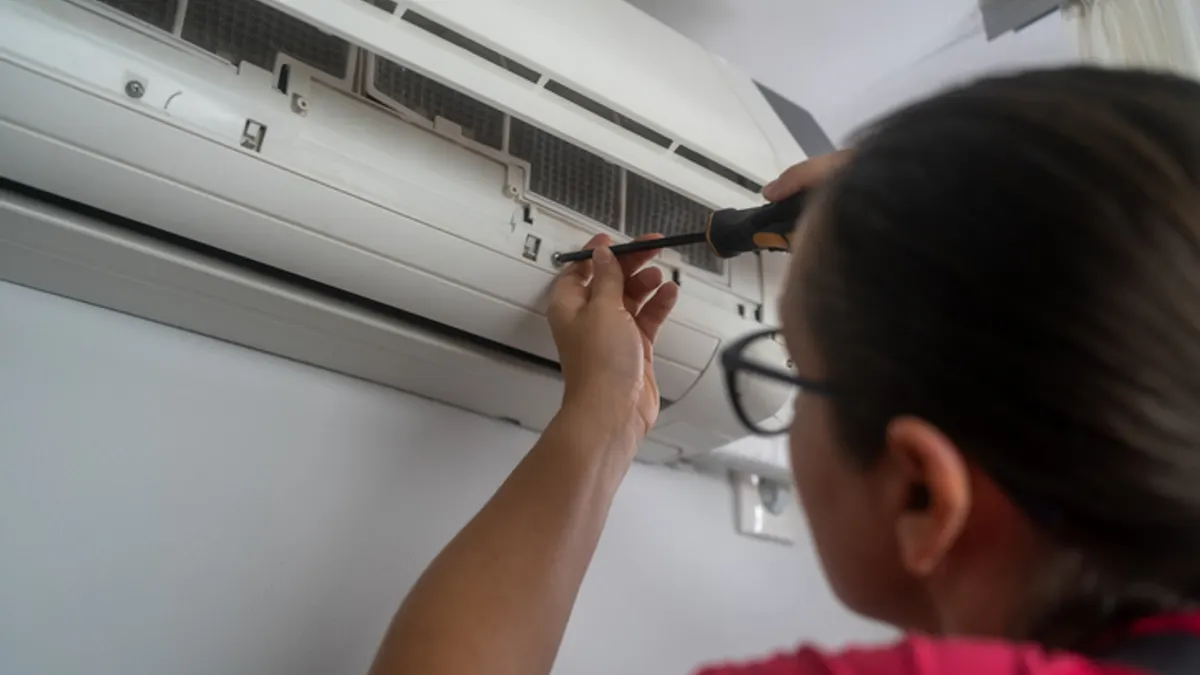Dive Brief:
- Although many technology firms were early adopters of remote work, the sector is shifting to hybrid work models, according to a report from JLL.
- Sixty-two percent of its tech clients in North America encourage employees to work from the office some of the time, JLL said. At the same time, some companies still see remote-first policies as a way to compete for top talent.
- Tech companies say they want sustainable and tech-enabled spaces that provide peak experiences for employees, with sustainability ranking as their second-highest priority after operating cost reductions, the report said.
Dive Insight:
JLL’s technology office spaces report, released November, found that between 2019 and 2021, the top 100 tech companies by market capitalization expanded their office portfolios by 14 million square feet to accommodate workforce growth and proactively secure space for future needs. When economic growth slowed, these companies offloaded underutilized space, subleasing 10 million square feet of space in the fourth quarter of 2022 and first quarter of 2023.
“For years, the name of the game was expansion. Now, tech companies are looking … to address emerging priorities such as cost management, portfolio optimization, increased sustainability and balancing new workplace expectations and priorities,” Rob Kolar, division president of technology at JLL Work Dynamics, said in a release.
Collaboration, culture and social connections are what most encourage employees to return to the office, JLL said. About 58% of surveyed tech companies named potential productivity gains as a reason for return-to-office mandates, while 12% said increased cybersecurity and 27% said a focus on well-being.
A separate global technology survey JLL released in October 2023 found that more than 90% of corporate tenants are willing to pay a premium for tech-enabled space. The November offices space report found that 69% of tech firms are providing enhanced amenities and spaces, with 65% saying they are enhancing office technology and 50% hosting special events to encourage employees to work from the office. Small- to mid-cap tech companies said they envision the total space per person declining, but total rentable square feet for these projects is increasing, demonstrating that firms expect a growing headcount without real estate expansion, JLL said.
The report also highlighted that the disconnect between the number of days that employees work and how many days they would like to work from the office is shrinking; JLL Research found that, as of the third quarter of 2023, employees worked 3.1 days in the office but expected to work only 2.8 days.
JLL said many tech firms with a preference for in-office work are implementing “sticks” and “carrots” — rules attributed to attendance or rewards and upgrades within the office — to improve attendance.
The report also found that tech companies enacting hybrid approaches have more flexible policies than companies in other industries, resulting in a greater ability to adapt office footprints to match hybrid work models. Fifty-five percent of technology businesses reported that more than half of their office space portfolio is optimized for “new ways of working,” the company said. Some smaller midcap tech companies stated they expect to expand their footprints by about 50% in the future, JLL said, noting that 36% of all tech clients cited plans to expand their office space portfolio in the next three to five years.
“Tech companies report that they have more underutilized space than other industries, leading to opportunities to re-evaluate portfolios,” Katy Redmond, co-lead for the Americas at JLL’s Markets Advisory integrated portfolio services and tech industry business, said in a release. “As needs for hybrid work become clearer, some of this space available for sublease will be withdrawn to accommodate for higher office attendance. Companies that shed space in the last year are looking to expand again and add spaces for hybrid [work].”
Editor’s note: An alternative draft of this story was briefly published in error. We have restored the originally published draft.











